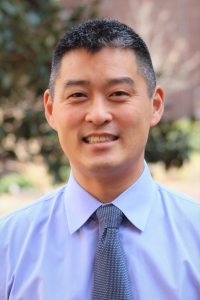The UNC Allergy and Immunology Clinic has been selected to become an FCN Discovery Center of Distinction. With this new designation, lead principal investigator, Edwin Kim, MD, MS, will receive a $100,000 stipend to help develop critical infrastructure necessary to deliver optimal clinical care and leadership in the community to patients with food allergy.

The FCN Network has three types of centers, including Discovery Centers of Distinction, Clinical Research Centers of Distinction, and Clinical Care Centers of Distinction. As leader of a Discovery Center of Distinction, Dr. Kim and his team of researchers will conduct new research on treatments, diagnostics, prevention and improvements to care. Through participating in the network, the new center will also serve as a site for clinical trials and basic/translational research on food allergy, assist in the development of new therapeutics, help carry out multi-center investigations, as well as help train the next generation of food allergy investigators.
This award comes with an annual $100,000 stipend for up to five years to be used to help develop critical infrastructure necessary to carry out the FCN’s mission. The funds will help ensure that patients with food allergies have access to state-of-the-art diagnosis and treatment, short-term as well as long-term care, and research that addresses factors from discovery to application along the entire clinical and translational spectrum.
“With the institution of the FARE Clinical Network, FARE – as the leading food allergy advocacy group and largest private funder of food allergy research – has created the capability of conducting food allergy research on a scale not previously imaginable. We at the UNC Food Allergy Initiative are honored to be selected as a FARE Discovery Center of Distinction and excited to be a leader within the FCN to work towards its goal of finding a cure for food allergies,” Dr. Kim said.
To help those who are suffering from severe peanut allergic reactions, Dr. Kim and his team of researchers are currently conducting a study using a treatment called peanut sublingual immunotherapy – or Peanut SLIT – a treatment using a miniscule amount of liquefied peanut protein under the tongue, where it is absorbed into the blood stream to desensitize the immune system to larger amounts of peanut protein. The current study focuses on the effectiveness of SLIT amongst preschool-aged children. Funded by FARE for the past four years, Dr. Kim said results from this trial are expected at the end of 2020.